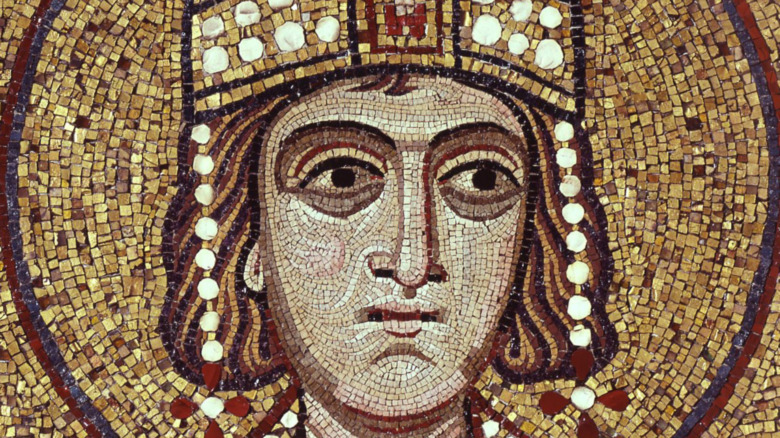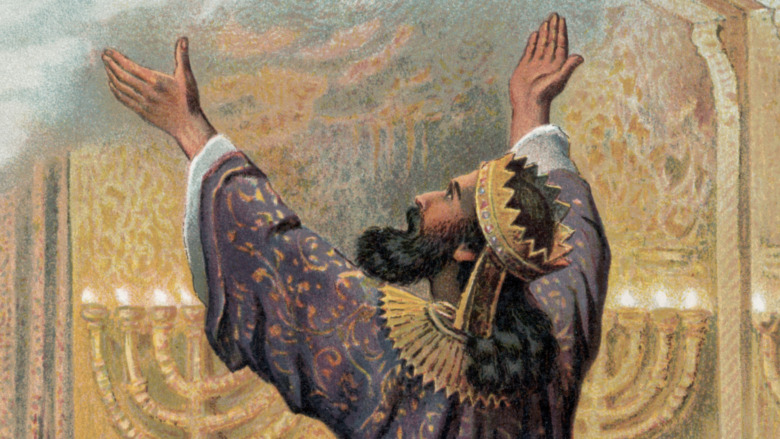This Is How King Solomon Rose To Power
King Solomon, the King of ancient Israel whose narrative occupies several chapters in the Old Testament, is today largely remembered for his writings and his purported wisdom. While Christian children in Sunday school are taught anecdotes about his wise rulings, serious Biblical scholars study his poetry and truisms not just as sacred writ, but as Western literature.
Absent from the modern, cultural narrative about the ancient monarch is the fact that his legacy extends beyond his writings and his wise rulings. During his reign, he was also one of the wealthiest and most powerful rulers, not just in his time and place (Palestine in the 10th century BCE), but quite possibly of all time, according to MarketWatch.
Solomon came to power via a series of behind-the-scenes subterfuges, and held onto it through political machinations not uncommon to modern politics. According to the Biblical narrative in 2 Samuel 11 (posted at Bible Gateway) Israel's then-king, David, had an adulterous relationship with a woman named Bathsheba. She was another man's wife, a man whom David indirectly had killed. David conceived multiple children with Bathsheba, the first of whom (who wasn't named) died, purportedly as punishment for David's sins. After God forgave David, the king married Bathsheba. The pair produced Solomon and an unknown number of other children.
Solomon was not the heir apparent to Israel's throne at the time of his birth, however. That fell to Solomon's older half-brother, Adonijah, David's son with another of his wives, according to 1 Kings 1.
Solomon began to do what modern rulers do as well
As his father lay dying, the young claimant to the throne gathered up his army and pressed his claim, only to be rebuked by a pro-Solomon faction led by a prophet and other key players, which convinced David to announce that Solomon should be king. According to an article posted by the University of Chicago, Solomon might have been as young as 12 years of age when he ascended the throne.
Once he was king, Solomon began doing something that wouldn't be out of character for a modern dictator or ambitious head of state: He consolidated his power. Specifically, according to 1 Kings 4, he purged his administration of his father's men, and replaced them with his own loyalists. In particular, considering that Solomon's kingdom was effectively a theocracy, Solomon installed clerics favorable to him in key government positions as well.
His administration fully in place, Solomon then went on to expand his nation's wealth and influence, greatly increasing the size of his own personal coffers in the process. According to 1 Kings 10, the king set up colonies, trading posts, and alliances with other rulers, such as the Queen of Sheba, in the process becoming quite possibly one of the wealthiest men who ever lived. According to the Biblical narrative in 1 Kings 23, "King Solomon was greater in riches and wisdom than all the other kings of the earth."

